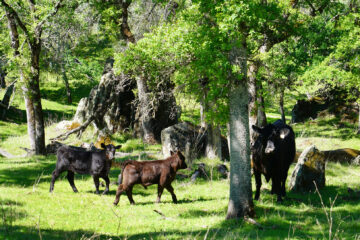It’s a beautiful spring day and you decide it is a wonderful opportunity for a picnic with loved ones. You go into the kitchen to prepare the outdoor feast and begin to assemble the materials for sandwiches. You reach into the produce drawer, to pull out the lettuce and tomato, and to your surprise, it is completely empty! No fruit, no vegetables, and no potato salad garnish. Perturbed, you continue to look for items for your picnic; you reach for grandma’s special rhubarb pie and to your horror, you find it reduced to a pile of flour and refined sugar. In what kind of world is this a reality? A world without bees.

Bees are an invaluable part of our earth. Bees feed on pollen and plants have taken advantage of this by using bees to carry pollen from plant to plant, thereby allowing them to reproduce. They are the key pollinators for a great majority of plants, including those from which we harvest food, and certain plants depend exclusively on bees for their reproduction. Crops that would nearly disappear without bees include apples, blueberries, almonds, oranges, and many more!
Unfortunately, the scenario described above is not far from reality. Bees have been vanishing and are in danger of disappearing completely, and the scary part is that no one quite understands why. The future of bees and picnics does seem bleak, but it is not hopeless. Placer Land Trust is making an effort to conserve the bee population. PLT is currently working with the California State Beekeepers Association and the California Council of Land Trusts to forge new partnerships between beekeepers and land owners. PLT is also working with UC Davis on numerous scientific studies that aim to study and advance bee conservation techniques. However, organizations like PLT are not the only ones able to preserve the bees; we, as concerned citizens, can make a difference and ensure bees are around for future generations.
Some tips to protect our precious pollinators include, eliminating the use of pesticides in our gardens, buying organic whenever possible, hosting a bee hive, and planting flowers bees love such as poppies, roses, and marigolds. If you live in an apartment, look at installing a window box planter, take part in a community garden, or discuss installing a rooftop garden with your landlord. Finally, one of the most important ways to help preserve the bee population is to educate yourself and others on how crucial bees are to our way of life. If we all take a little extra time for the bees then we can ensure many more picnics, and the safety of grandma’s special rhubarb pie.
By Alyssa Harmon

